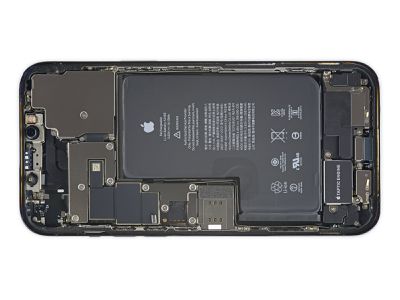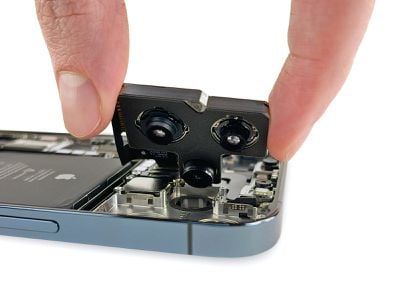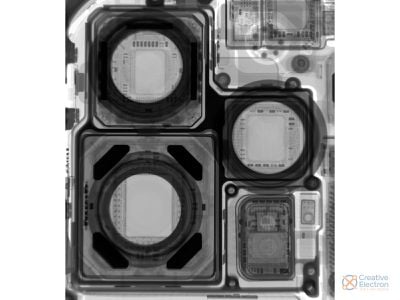In the last of its iPhone 12 series teardowns, iFixit has published its iPhone 12 Pro Max disassembly, which reveals some unique differences in the design of the internals, including the full extent of the larger camera system responsible for the improved low-light performance on Apple's largest iPhone to date.

On opening the iPhone 12 Pro Max, the first obvious difference compared to the iPhone 12 Pro is the presence of an L-shaped battery, which Apple first used in the iPhone 11 Pro Max. That's in contrast to the iPhone 12 Pro's more rectangular-shaped battery, which rumors suggest Apple used to offset increased costs owing to 5G technology.
The battery in the iPhone 12 Pro Max is still the most capacious in the iPhone 12 series, providing 14.13Wh, compared to the 10.78Wh used in the iPhone 12 and iPhone 12 Pro, but still short of the 15.04Wh battery used in the iPhone 11 Pro Max.
Moving on, iFixit was most impressed camera package, which is a lot bigger than the one in the iPhone 12 because of Apple's sensor choice.

Sorry to break it to you, but size does matter—at least when it comes to camera sensors. To achieve their alleged 87% improvement in low-light performance, the 12 Pro Max uses the biggest sensor in an iPhone yet.
As the below x-ray of the camera package shows, the standard wide camera (bottom left in the group of three) has a 47% larger 12-megapixel sensor than the iPhone 12, which allows more light to enter, resulting in better photos.
The four magnets surrounding it also underline the presence of Apple's brand-new sensor-shift image stabilization system, which moves the sensor thousands of times a second to compensate for hand shake.

As iFixit notes, most smartphones use lens-based optical image stabilization (OIS) to smooth out jitters, so Apple either decided its own system was a better solution, or it couldn't adequately stabilize the larger version of its new f/1.6 lens.
Elsewhere, iFixit highlights the more compact design of the logic board compared to the iPhone 12, as well as the modular SIM card reader, which is "excellent for repair, if a little oddly placed," and rubber gaskets instead of adhesive to affix the speakers, which makes for a "much easier removal and replacement procedure than in years past."
The iPhone 12 and iPhone 12 Pro earned a repairability score of 6 out of 10, and the iPhone 12 Max gets the same, thanks to Apple's continued use of proprietary screws, the devices' increases in waterproofing that can complicate repairs, and the increased chance of breakage due to glass on the front and back of the two devices.























